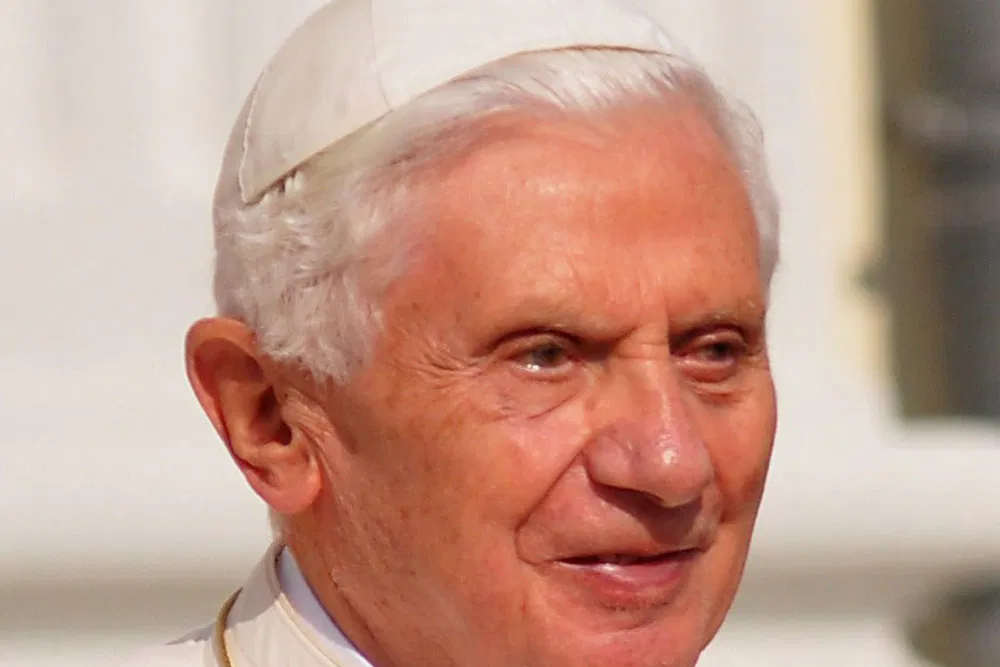
Pope Benedict XVI, born Joseph Aloisius Ratzinger on April 16, 1927, in Marktl, Bavaria, Germany, was one of the most influential theologians and leaders of the Catholic Church in modern history. His tenure as the 265th pope from 2005 to 2013 was marked by intellectual depth, a commitment to Catholic tradition, and his historic resignation—the first in nearly 600 years. This article explores his early life, rise in the Church, papacy, key theological contributions, and lasting impact.
Joseph Ratzinger grew up in a devout Catholic family in Nazi Germany, where his faith was shaped by both religious devotion and the political turmoil of the time. His father, a police officer, opposed the Nazi regime, and young Joseph was conscripted into the Hitler Youth, though he was never an enthusiastic participant. By 1943, he was drafted into an anti-aircraft unit and later into the German army before deserting near the end of World War II.
After the war, he entered the seminary and was ordained as a priest in 1951, along with his brother Georg. Ratzinger pursued academic excellence, earning a doctorate in theology and becoming a professor at several universities in Germany. His scholarly work focused on dogmatic theology, and he quickly gained a reputation as a brilliant theologian. His book 'Introduction to Christianity' (1968) remains a landmark work in Catholic theology.
Ratzinger played a significant role in the Second Vatican Council (1962–1965) as a theological advisor. Initially aligned with reformist ideas, he later became critical of what he saw as the misinterpretations of Vatican II, particularly the move toward secularization and relativism. His theological positions emphasized a return to core Catholic teachings, which would define his later leadership.
In 1977, Pope Paul VI appointed Ratzinger as Archbishop of Munich and Freising, and soon after, he was made a cardinal. In 1981, Pope John Paul II appointed him as Prefect of the Congregation for the Doctrine of the Faith, a role in which he defended traditional Catholic doctrine against theological deviations and modernist influences.
For over two decades, Ratzinger was a close advisor to John Paul II and was seen as a guardian of orthodoxy. When John Paul II passed away in 2005, the conclave elected Ratzinger as pope on April 19, choosing the name Benedict XVI in honor of St. Benedict and Pope Benedict XV.
Benedict XVI was known for his deep theological writings and commitment to the continuity of Catholic tradition. He issued three encyclicals—'Deus Caritas Est' (God is Love), 'Spe Salvi' (Saved by Hope), and 'Caritas in Veritate' (Charity in Truth)—which explored themes of love, hope, and social justice.
Benedict XVI emphasized the importance of Catholic identity, encouraging a revival of traditional liturgical practices, including the Latin Mass. He promoted a "hermeneutic of continuity," stressing that Vatican II should be interpreted in harmony with the Church’s historical teachings rather than a radical break from the past.
One of the most significant challenges of his papacy was addressing the clergy sexual abuse crisis. Benedict XVI took steps to hold clergy accountable, met with victims, and implemented stricter measures against abusers. However, critics argued that more could have been done during his tenure.
Benedict XVI worked to strengthen interfaith dialogue, particularly with Islam and Judaism. His 2006 Regensburg lecture, however, sparked controversy for its reference to a historical critique of Islam. Despite this, he fostered relations with Muslim and Jewish leaders throughout his papacy.
On February 11, 2013, Pope Benedict XVI shocked the world by announcing his resignation, citing declining health and the inability to fulfill the demands of the papacy. This marked the first voluntary papal resignation since Pope Celestine V in 1294. He retired to a life of prayer and contemplation at the Mater Ecclesiae Monastery in Vatican City, where he remained until his passing on December 31, 2022, at the age of 95.
In retirement, Benedict XVI continued to write, offering theological reflections while maintaining loyalty to his successor, Pope Francis. His resignation set a precedent in modern Church history, influencing discussions on the role of aging popes.
Pope Benedict XVI left an enduring legacy as a theologian, defender of Catholic tradition, and intellectual force within the Church. His contributions to Catholic doctrine, moral theology, and interfaith relations continue to be studied and debated. While his papacy was marked by challenges, including internal Church crises and external criticisms, his theological writings and commitment to preserving the faith remain a cornerstone of his legacy.
As a pope who valued reason and faith in equal measure, Benedict XVI’s teachings continue to guide Catholics and scholars alike, ensuring his place as one of the most significant theological minds of the 21st century.